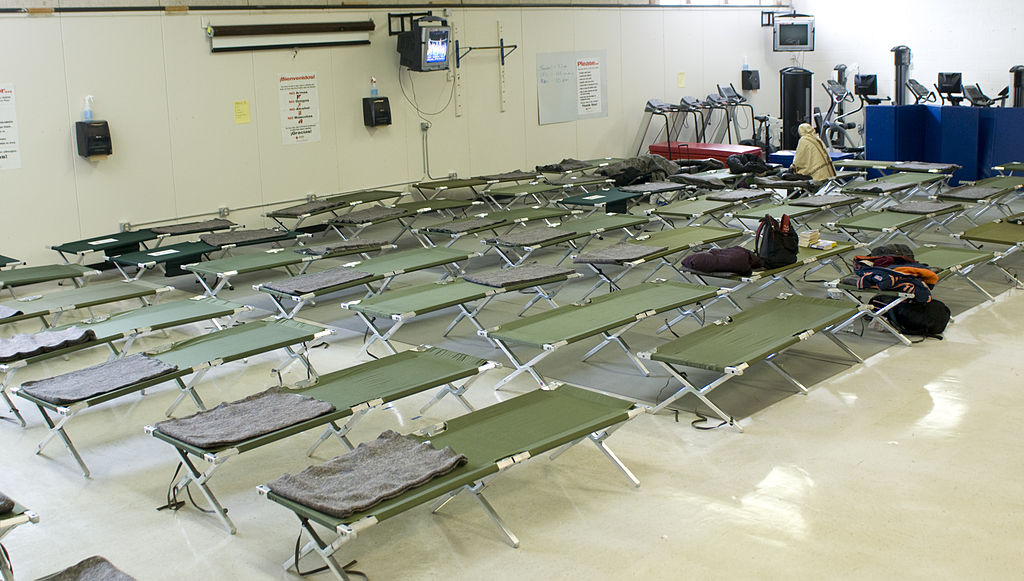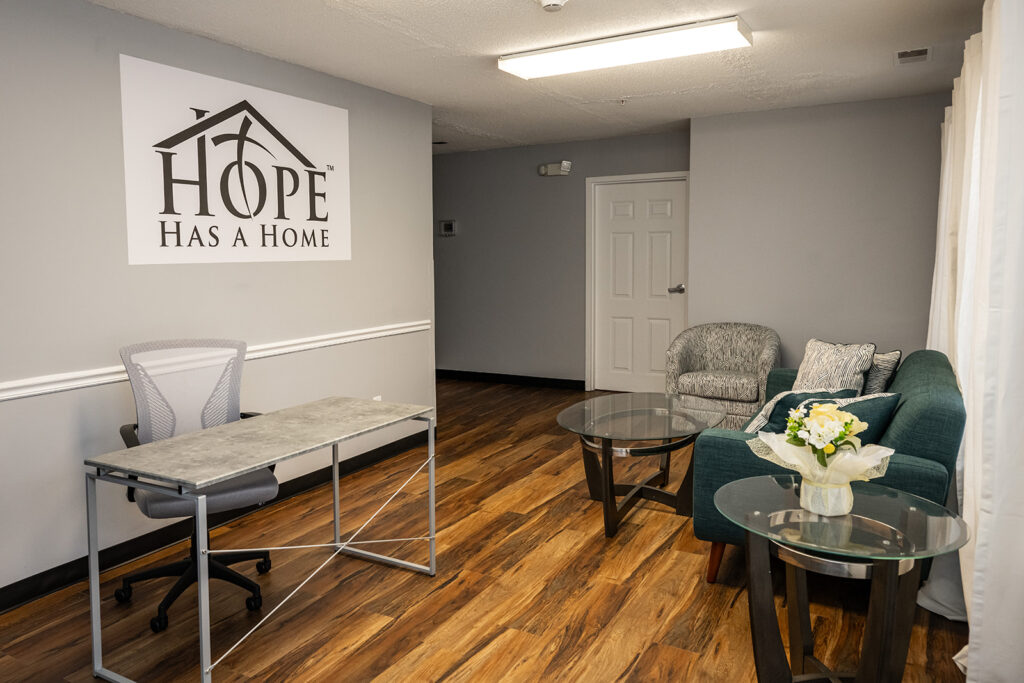Melvern Reid lost her apartment after the building was sold. For awhile now, she and her 10-year-old grandson have moved from place to place, doubling up with various friends and relatives.
About three weeks ago, after a friend asked them to move on, Reid and the boy found themselves with no other option than to spend a night in a coin laundry.
“You sit in a chair and fake like you are washing clothes,” explained Reid, 59.
In the morning, after she walked her grandson to school, she went the the Virginia Williams Family Resource Center. She asked for shelter.
The city is legally required to shelter the homeless from winter cold. But this winter, a flood of homeless families has overwhelmed the city’s shelter system. The 285 rooms at the city’s family shelter, the former D.C. General Hospital, have remained full. Hundreds more families have exhausted the supply of motel rooms the city rents when the shelter overflows.
By the time Reid qualified for help, the city had begun housing families at city recreation centers. The step was controversial, but city officials said they had little choice.
At about 10 o’clock on that bitterly cold night, the hypothermia hotline bus delivered Reid and her grandson to one of the recreation centers. Inside, Reid recalled, they found other families already gathered behind loosely assembled partitions, with babies crying, toddlers wandering, parents talking and lights shining down from the ceiling.
“They had to make a space for us,” she recalls. “We were in front of the bleachers.”
They bedded down on cots with makeshift dividers on two sides.
“There was no privacy whatever,” said Reid, a small woman with a coronet of fine braids.
The night was hard for her, but harder for her grandson. “He was scared.”
The next few nights, also spent in rec centers, were scarcely better, she recalled. Her grandson was afraid to let her out of his sight, afraid to wash up at the men’s room sink, tired and distracted from lack of sleep.
District officials said the partitioned areas constituted the “private rooms” the city is required to provide to homeless families under the city’s Homeless Services Reform Act.
Legal advocates sued, claiming that homeless families were entitled by law to more privacy.
Reid and three other families were named as plaintiffs in a class action suit.
On March 7, District of Columbia Superior Court Senior Judge Robert S. Tignor agreed with the advocates. He found that the recreation center placements denied the families “adequate privacy and physical security” and placed family members, particularly children, at increased risk of communicable disease, emotional trauma and stress.
He ordered that any of the named families remaining in the rec centers be moved into private rooms, in accordance with city law. One family named in the suit had already been placed in a motel for health reasons, prior to the judge’s ruling. Following the order, Reid and her grandson and two other families were placed.
“You hear about people going up against the government and never winning,” said Reid. “I’m kind of surprised we did.”
That single night in the motel was a relief, said Reid. Then the cold spell ended and with it, the city’s offer of hypothermia shelter.
Reid and her grandson are doubled up again, this time with her sister who is 75 and suffers from emphysema.
“I can’t stay with her much longer,” noted Reid, a former child care provider who spends her days at a work readiness program, developing her computer skills and hoping for an office job.
For their part, city officials are interpreting the rec center ruling as applying only to the four named plaintiffs. They note that with the approach of the tourist season and the annual cherry blossom festival, available motel rooms will be in even shorter supply. In a statement issued after the ruling, David Berns, Director of the city’s Department of Human Services, warned that the District can guarantee no additional motel placements.
“The city will continue to provide for the safety of children and families during hypothermia alerts using the resources available. Although space at hotels for three families for a night was possible to arrange, the supply of hotel rooms in the District available for other homeless families has been exhausted,” said Berns. “The continued use of the emergency shelters during hypothermia alerts remains the only available option for those not covered in the judge’s order.“








